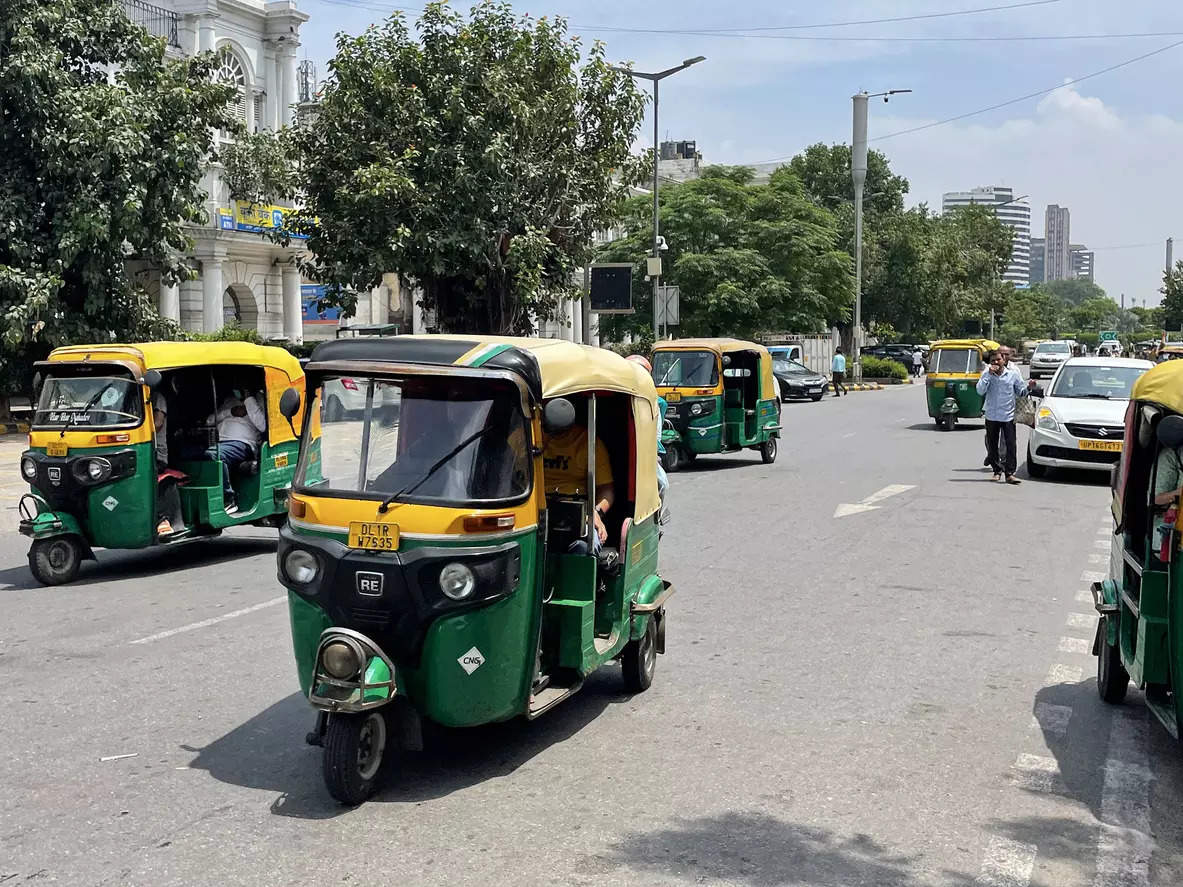
New Delhi: It has been some years now since fresh three-wheeler passenger permits were issued to drivers in Delhi.
The last time around was in 2011 when there was an order passed to grant 100,000 permits for use in CNG auto rickshaws. Of these, 95,000 were issued while 4,200 were subsequently allocated for e-rickshaws in 2021. At that point in time, there was one school of thought which was of the view that electric three-wheelers should not come under the permits ambit meant for CNG vehicles.
However, the bigger worry now is why are no fresh permits being issued in Delhi for passenger auto rickshaws. “Nobody has a clue and we keep hoping that a solution will emerge soon. What we do know is that India’s national capital needs at least one lakh three-wheelers more for its residents,” a top industry executive told ETAuto.
According to him, the silver lining in the cloud is that neighbouring states like Haryana and Uttar Pradesh have no such restrictions with issuance of permits and it is only the Delhi city administration “that is digging its heels in”. Another official said the problem stems from the proverbial situation of too many cooks spoiling the broth.
As he put it, entities like the Transport Department and Environment Pollution (Prevention & Control) Authority also have a say when it comes to permits for passenger auto rickshaws. “The perception is that these vehicles are polluting and should stay off the city’s roads,” added the official.
The fact that some manufacturers are also ready with electric three-wheelers seems of little consequence. There have been replacements happening over the last few years but these new additions to the three-wheeler fleet matter little when the need of the hour is close to one lakh auto rickshaws.
Peculiar problem
Delhi is also facing a peculiar problem of accountability and governance. Key leaders of the governing Aam Aadmi Party are being behind bars which has thrown a spanner into decision-making. Further, the political capital of the country has way too many heads involved in critical issues which comes in the way of finding quick solutions.
Incidentally, in 2019, there was an additional affidavit filed in the Court for 300,000 auto rickshaws to be released for Delhi but this also remained in cold storage. This was during the time of Bharat Stage IV emissions with the next level, BS VI, scheduled to be operational from April 2020. However, COVID also signalled its arrival around the same time and things have been in limbo for Delhi since then.
Clearly, a large part of the problem has to do with emissions since auto rickshaws have always been perceived as the biggest contributor to fouling up the air. “Today, CNG and electric have taken over in a big way in this segment and there is no reason for passenger three-wheelers to be punished in getting permits for Delhi,” said an industry old server.
From manufacturers’ point of view, the impasse is exasperating because it means potential business lost in a key market simply because “the right hand doesn’t know what the left (hand) is doing”. The shortage of auto rickshaws also means that drivers are having a field day and charging customers the moon especially during peak demand.
CNG, electric options
According to the official quoted earlier in this story, there are way too many contradictions happening in Delhi when it comes to clean air priorities. CNG and electric as touted as better alternatives to petrol and diesel but auto rickshaws operating on these fuels are still being given the cold shoulder. However, when it comes to other forms of transport, there is no such objection being raised, he said.
“Auto rickshaws may not be glamorous like cars and SUVs but it is not as if everyone can afford these expensive options. The common man still needs this vehicle which is also better suited to navigating busy roads,” said the industry observer.
Delhi may be averse to issuing three-wheeler passenger permits but the cost of procuring one can run into over INR 4 lakh going by what sources say. “Then you have the intermediate markets like Karnataka and Uttar Pradesh as well as Tamil Nadu and Hyderabad where permits cost upwards of INR 1 .5 lakh,” they add.
Kolkata, like Delhi, is another “challenging region” when it comes to easy issuance of permits though this has more to do with multilayered bureaucratic approvals rather than anything else. Gujarat, however, ranks high when it comes to “a clean system for permits”. They barely cost INR 4,500 and this by itself reflects the “natural entrepreneurial spirit of the Gujarati”. Maharashtra has had an open permit system in place since 2017.
The prominent three-wheeler makers are Bajaj Auto, Piaggio, Mahindra & Mahindra and TVS Motor with many others now entering the electric space. While passenger auto rickshaws are facing the heat in Delhi, electric cargo versions are doing well thanks to the booming e-commerce market that has taken off after the pandemic.

















